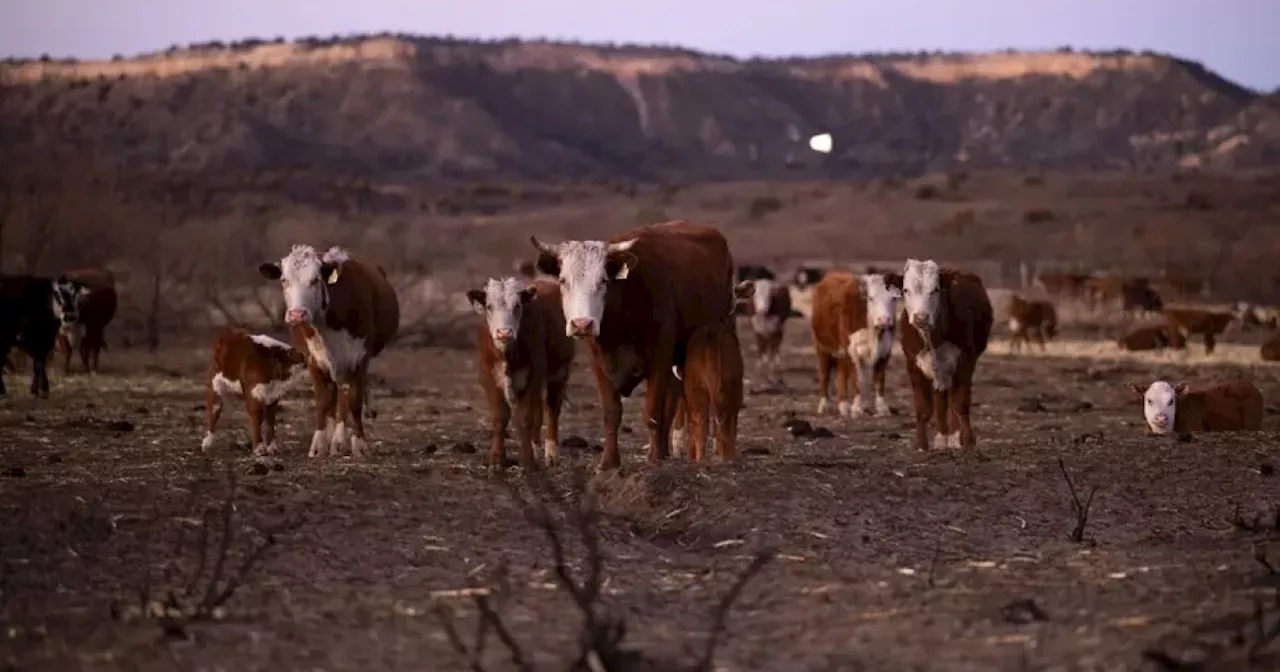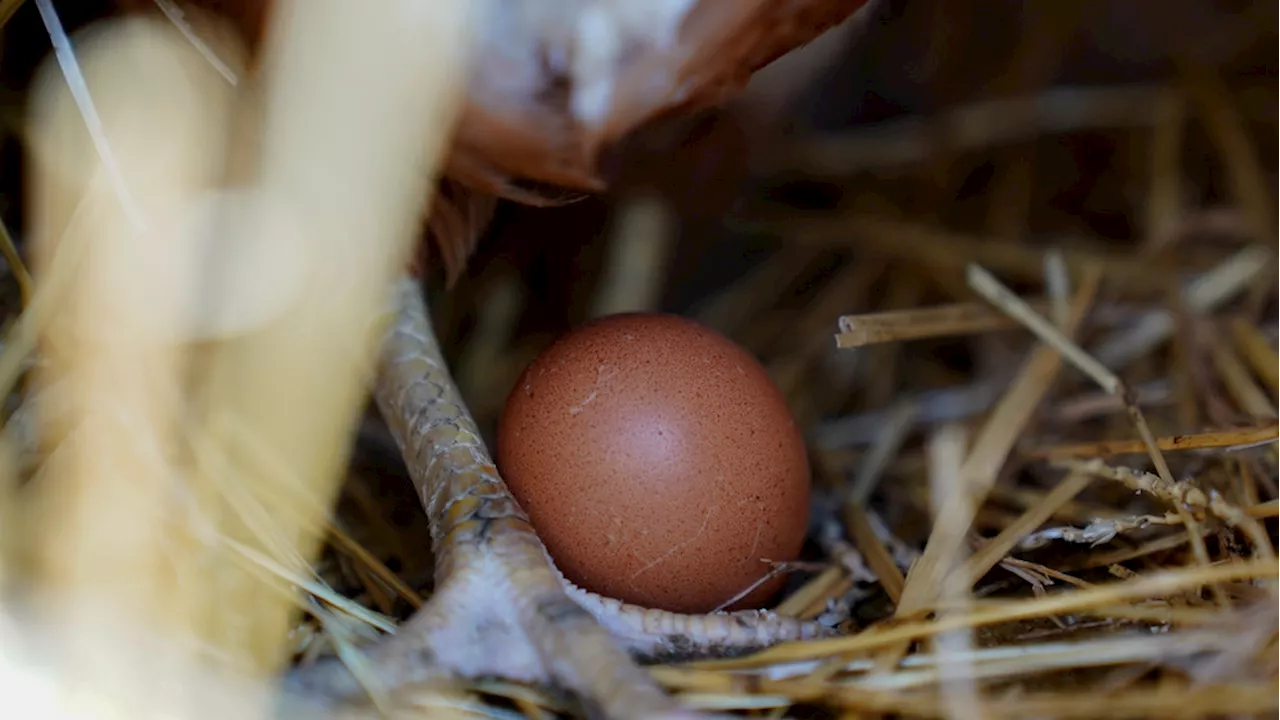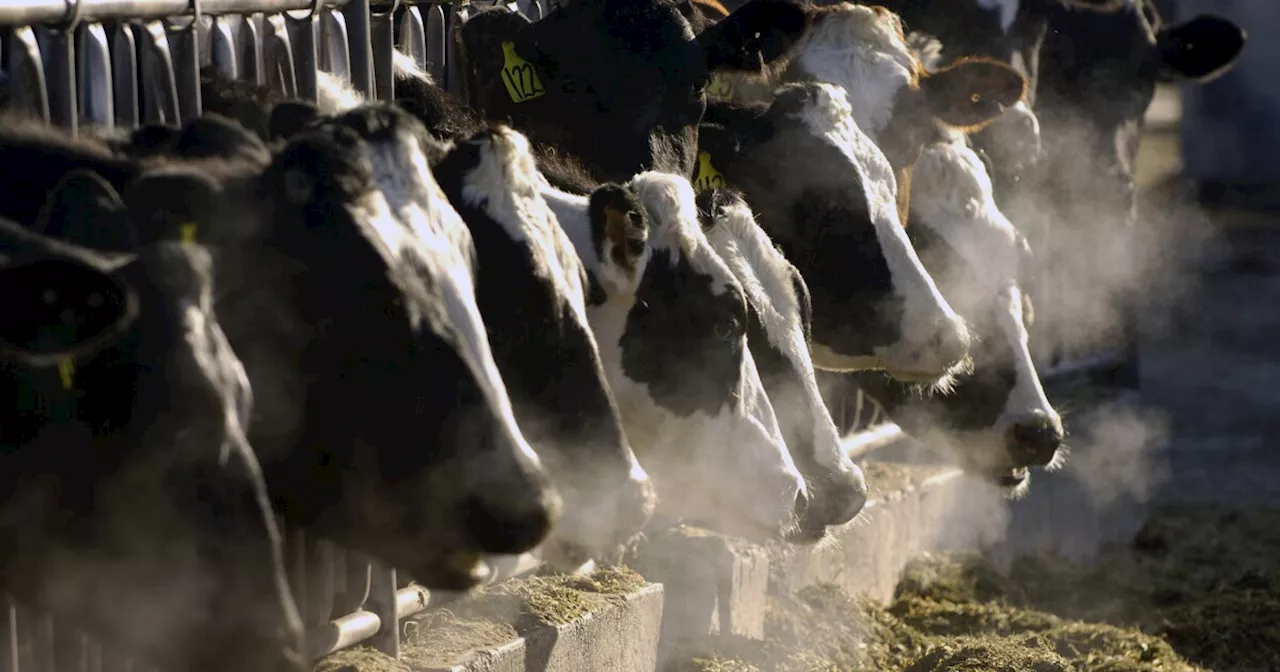Avian influenza, also known as bird flu, has been detected in dairy cows in multiple states and has infected one person in Texas. This article provides information on transmission, symptoms, and food risks associated with the virus.
Avian influenza, aka bird flu , has spread to dairy cows in multiple states and one person in Texas. What to know about transmission, symptoms and food risks .Earlier this month, a dairy worker in Texas tested positive for bird flu , aka avian influenza, amid an outbreak of the virus among dairy cattle.according to the U.S. Centers for Disease Control and PreventionThe multi-state bird flu outbreak is affecting cows in over a dozen dairy farms across the country.
This is the first time the avian influenza strain of highly pathogenic H5N1, which causes severe and often fatal disease in birds, has been found in cows. “That’s pretty unusual,” says Schaffner. However, this H5N1 strain does not seem to be making cows very sick, he adds.Highly pathogenic avian influenza viruses have been detected in the U.S. in wild aquatic birds, commercial poultry and backyard bird flocks beginning in January 2022, according to the CDC.
Infected birds can shed the virus in their saliva, nasal secretions, mucus and feces. People can become infected when a large enough amount of the virus gets into the mouth, nose, eyes or is inhaled, says Schaffner. Sporadic cases of H5N1 in humans have been reported around the world, often in rural areas where people live closely with poultry or other birds. According to the Once the bird flu gets into a human, “it is almost never spread to anyone else,” says Schaffner. However, “there are ultra-rare instances of transmission from a person very sick with bird flu to a family member or caregiver.”
"We have not seen cases that have been from ingesting animal products or animals that may have been infected," says Babcock.
Avian Influenza Bird Flu Dairy Cows Transmission Symptoms Food Risks
United States Latest News, United States Headlines
Similar News:You can also read news stories similar to this one that we have collected from other news sources.
 Avian Influenza A(H5N1) Detected in Texas Dairy CattleThe novel avian influenza A(H5N1) started infecting dairy cattle in the Panhandle last week, in another blow to the Texas dairy industry after ranches lost thousands in the historic wildfires. It’s the first human case of the highly pathogenic strain of avian influenza in Texas, and it’s the second.
Avian Influenza A(H5N1) Detected in Texas Dairy CattleThe novel avian influenza A(H5N1) started infecting dairy cattle in the Panhandle last week, in another blow to the Texas dairy industry after ranches lost thousands in the historic wildfires. It’s the first human case of the highly pathogenic strain of avian influenza in Texas, and it’s the second.
Read more »
 Avian Influenza Forces Temporary Production Halt at Texas Egg PlantThe biggest producer of fresh eggs in the U.S. has temporarily ceased production at a Texas plant due to avian influenza. Cal-Maine Foods found an infection in one of its facilities, resulting in the depopulation of approximately 1.6 million laying hens and 337,000 pullets. The company is working to secure production from other facilities to minimize disruption to its customers. The U.S. Department of Agriculture confirms that the virus cannot be transmitted through safely handled and properly cooked eggs. There is no known bird flu risk associated with eggs currently in the market and no eggs have been recalled.
Avian Influenza Forces Temporary Production Halt at Texas Egg PlantThe biggest producer of fresh eggs in the U.S. has temporarily ceased production at a Texas plant due to avian influenza. Cal-Maine Foods found an infection in one of its facilities, resulting in the depopulation of approximately 1.6 million laying hens and 337,000 pullets. The company is working to secure production from other facilities to minimize disruption to its customers. The U.S. Department of Agriculture confirms that the virus cannot be transmitted through safely handled and properly cooked eggs. There is no known bird flu risk associated with eggs currently in the market and no eggs have been recalled.
Read more »
 Person contracts avian influenza after contact with dairy cattleThe second human case of the bird flu in the U.S. was reported in Texas by someone who had direct contact with dairy cattle.
Person contracts avian influenza after contact with dairy cattleThe second human case of the bird flu in the U.S. was reported in Texas by someone who had direct contact with dairy cattle.
Read more »
 Avian Influenza Spreading Among Dairy Cattle: Scientists Investigate Pandemic PotentialScientists are closely monitoring the spread of avian influenza among dairy cattle and investigating the potential mutations that could make the virus a threat to humans. The unusual transmission among cattle and a dairy worker has prompted researchers to analyze the data and understand the spillover. The risk to humans depends on the virus's ability to evolve and better infect mammals.
Avian Influenza Spreading Among Dairy Cattle: Scientists Investigate Pandemic PotentialScientists are closely monitoring the spread of avian influenza among dairy cattle and investigating the potential mutations that could make the virus a threat to humans. The unusual transmission among cattle and a dairy worker has prompted researchers to analyze the data and understand the spillover. The risk to humans depends on the virus's ability to evolve and better infect mammals.
Read more »
 Avian Flu Spreads to Dairy Farms, Risk to Public Remains LowThe highly contagious avian flu virus has now spread to dairy farms, according to the U.S. Department of Agriculture. Government and health officials assure that the risk to the public remains low. Dr. Mandy Cohen, the director of the CDC, discusses the potential risks and the government's response.
Avian Flu Spreads to Dairy Farms, Risk to Public Remains LowThe highly contagious avian flu virus has now spread to dairy farms, according to the U.S. Department of Agriculture. Government and health officials assure that the risk to the public remains low. Dr. Mandy Cohen, the director of the CDC, discusses the potential risks and the government's response.
Read more »
 Avian Influenza in EU Wild Birds Raises Concerns of Future Human PandemicAs avian influenza (bird flu) continues to spread among wild birds in the European Union, officials are warning of the potential for a future human pandemic. The European Food Safety Authority (EFSA) issued an alert noting the transmission between bird and mammal species, particularly in fur animal farms. Although rare, the agency warned that new strains could pose a danger in the future.
Avian Influenza in EU Wild Birds Raises Concerns of Future Human PandemicAs avian influenza (bird flu) continues to spread among wild birds in the European Union, officials are warning of the potential for a future human pandemic. The European Food Safety Authority (EFSA) issued an alert noting the transmission between bird and mammal species, particularly in fur animal farms. Although rare, the agency warned that new strains could pose a danger in the future.
Read more »
